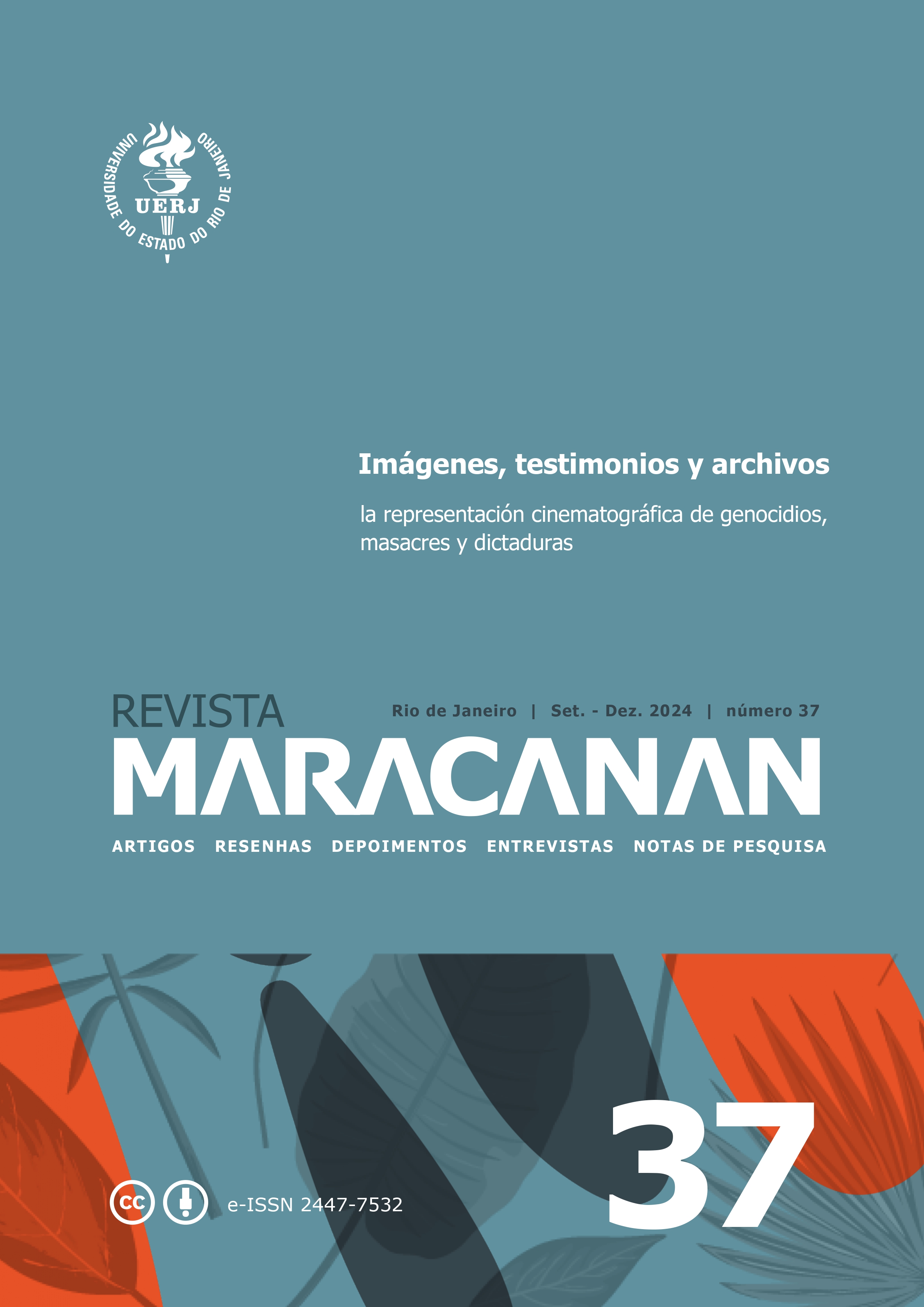60 anos do golpe de 1964 | Entrevista com Ricardo Antonio Souza Mendes
DOI:
https://doi.org/10.12957/revmar.2024.88928Palavras-chave:
Entrevista, Ricardo Antonio Souza Mendes, Ditadura Civil-Militar BrasileiraResumo
Ricardo Antonio de Souza Mendes, professor na UERJ, analisa as discussões em torno dos 60 anos do golpe de 1964 e o contexto atual que estimula o entendimento das direitas latino-americanas. Ele observa que o século XXI trouxe um aumento significativo na pesquisa sobre as direitas, revelando a diversidade dentro desse espectro político. Mendes destaca a importância de reconhecer que as vozes sobre a ditadura se diversificaram, incluindo grupos antes marginalizados, e critica a visão dicotômica que caracteriza o conflito entre Estado e sociedade. Além disso, aponta para a relevância do papel das empresas na repressão durante a ditadura, sublinhando a cumplicidade do empresariado nas violações de direitos humanos. Ele também menciona o fenômeno do negacionismo, que se intensificou sob o governo Bolsonaro, exigindo que historiadores revisitem e questionem temas consolidados da história. Mendes enfatiza a necessidade de entender as direitas como um fenômeno complexo e não reduzido a simples categorias, e ressalta a mobilização social dos setores conservadores em contextos de polarização política, além do debate sobre a nomenclatura da ditadura, que pode ser classificada como civil-militar, refletindo a influência de diversos atores.
Downloads
Referências
BASUALDO, Victoria; CAMPOS, Pedro Henrique Pedreira (Orgs.). Ditaduras, empresas e transformações econômicas e trabalhistas na América do Sul durante a Guerra Fria [Dossiê]. Revista Continentes, ano 8, n. 16, jan.-jun. 2020.
BOBBIO, Norberto. Direita e esquerda: razões e significados de uma distinção política. Tradução Marco Aurélio Nogueira. São Paulo: Ed. UNESP, 1995.
CUNHA, Diogo. A Academia Brasileira de Letras durante a ditadura militar: os intelectuais conservadores entre cultura e política. Rio de Janeiro: Appris, 2019.
DEUTSCH, Sandra McGee. Las Derechas: La extrema derecha en la Argentina, el Brasil y Chile. Buenos Aires: UNQ, 2005.
HERRERA, Genaro Arriagada. El pensamiento político de los militares. Sevilla: Aconcagua, 1986.
MENDES, Ricardo A. S. Visões das Direitas no Brasil – 1961-1964. Rio de Janeiro: Multifoco; FAPERJ, 2021.
MENDES, Ricardo A. S. O nacionalismo de extrema-direita de Ferdinando de Carvalho. Revista Maracanan, PPGH/UERJ, Rio de Janeiro, n. 27, p. 261-286. DOI: https://doi.org/10.12957/revmar.2021.52820.
MENDES, Ricardo A. S. Ditaduras civil-militares no Cone Sul e a Doutrina de Segurança Nacional – algumas considerações sobre a Historiografia. Revista Tempo e Argumento, Florianópolis, v. 5, n. 10, p. 6-38, 2013. DOI: https://doi.org/10.5965/2175180305102013006.
MENDES, Ricardo A. S.; SALES, Jean; ARAUJO, Rafael; SILVA, Tiago (Orgs.). Revolução cubana, Ecos, Dilemas e Embates na América Latina. Aracaju: IFSE, 2019.
ROMERO, Jose Luis. El Pensamiento político de la derecha latinoamericana. Buenos Aires: Paidos, 1970.
ROUQUIÉ, Alain. O Estado Militar na América Latina. Rio de Janeiro: Alfa-Omega, 1984.
SCHURSTER, Karl; et al. Velhas e novas direitas: a atualidade de uma polêmica. Recife: EDUPE, 2014.
Downloads
Publicado
Como Citar
Edição
Seção
Licença
Copyright (c) 2024 Ricardo Antonio Souza Mendes

Este trabalho está licenciado sob uma licença Creative Commons Attribution 4.0 International License.
Os autores mantêm os direitos autorais e concedem à Revista Maracanan o direito de publicação, sob uma Licença Creative Commons Atribuição 4.0 Internacional, a qual permite que outros distribuam, remixem, adaptem e criem a partir do seu trabalho, mesmo para fins comerciais, desde que lhe atribuam o devido crédito pela criação original.
Os dados e conceitos abordados são da exclusiva responsabilidade do autor.
A Revista Maracanan está licenciada com uma Licença Creative Commons Atribuição 4.0 Internacional.





